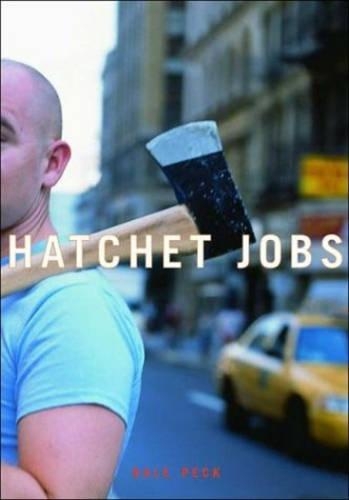
Hatchet Jobs: Writings on Contemporary Fiction
(Hardback)
Available Formats
Publishing Details
Hatchet Jobs: Writings on Contemporary Fiction
By (Author) Dale Peck
The New Press
The New Press
30th September 2004
United Kingdom
Classifications
Tertiary Education
Non Fiction
Literary studies: c 1900 to c 2000
823.91409
Physical Properties
Hardback
240
Width 139mm, Height 195mm
367g
Description
Novelist Dale Peck attacks the contemporary canon of fiction, whether it be Ricky Moody, Julian Barnes or David Foster Wallace, for writing bad prose without content. In one savage review after another, Peck contends that current contemporary fiction is heir to a bankrupt lineage that began with James Joyce, was continued by Faulkner, Nabokov, and led to the current bad state of fiction. Hatchet Jobs methodically eviscerates contemporary fiction - author by author. Dale Peck turns a harsh gaze against the publishing climate that fosters this mediocre work and the critical establishment that rewards it. Rife with fine textual analysis, important historical context, and startling insights about the power of fiction, Hatchet Jobs hacks away literature's deadwood in the hopes of discovering the vital heart of the contemporary novel. Here's a sample of Peck's hatchet jobs, from his controversial review in New Republic of Rick Moody (whom Peck called "the worst writer his generation"): All I'm suggesting is that these writers (and their editors) see themselves as the heirs to a bankrupt tradition. A tradition that began with the diarrheic flow of words that is Ulysses; continued on through the incomprehensible ramblings of late Faulkner and the sterlle inventions of Nabokov; and then burst into full, foul life in the ridiculous dithering of Barth and Hawkes and Gaddis, and the reductive cardboard constructions of Barthelme, and the word-by-word wasting of a talent as formidable as Pynchon's; and finally broke apart like a cracked sidewalk beneath the weight of the stupid -- just plain stupid -- tomes of DeLillo. A daring book for Dale Peck in the tradition of You'll Never Eat Lunch in This Town Again.
Reviews
"Dale Peck may have an ego the size of Montana. He may have annoyed half the known literary world with his screeds on other writers. But he may also be one of our most adventurous and singularly talented writers working today." San Francisco Chronicle
"Alive, crackling and sparkling with electric energy . . . Pecks style is classic American, a jivey mix of rhetoric and spontaneity." The Washington Post
"Peck challenges received critical wisdom with energy, fire, and unmitigated gall. Behind the loudmouth cynicism is an idealist whod open a hill of literary oysters in search of a single pearl." The Boston Globe
Author Bio
Dale Peck is the author of the novels Martin and John, The Law of Enclosures, and Now It's Time to Say Goodbye, as well as the memoir What We Lost. He is the recipient of the Guggenheim Fellowship and an O. Henry award.
